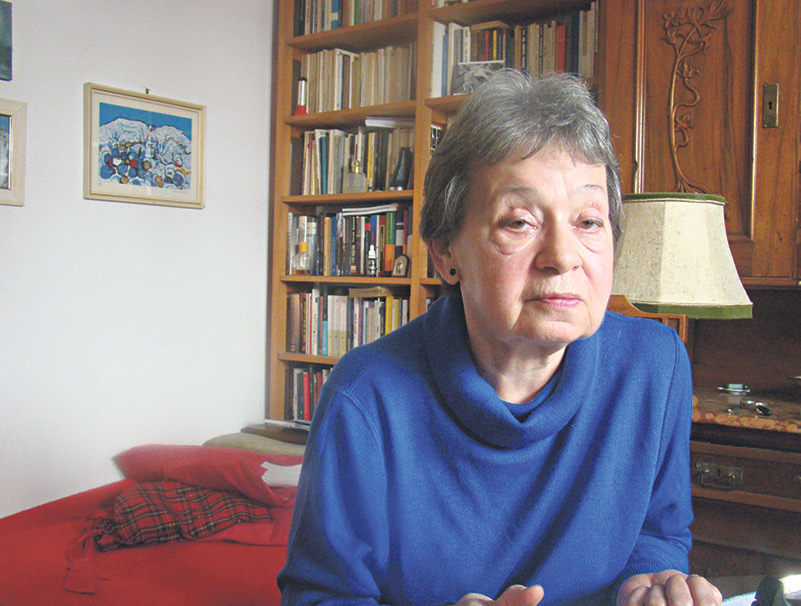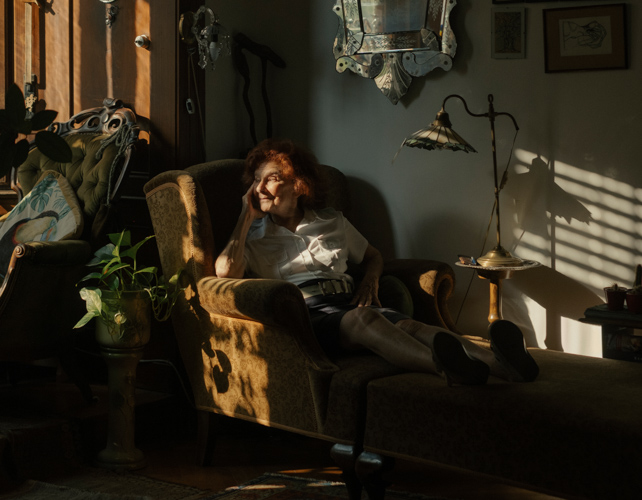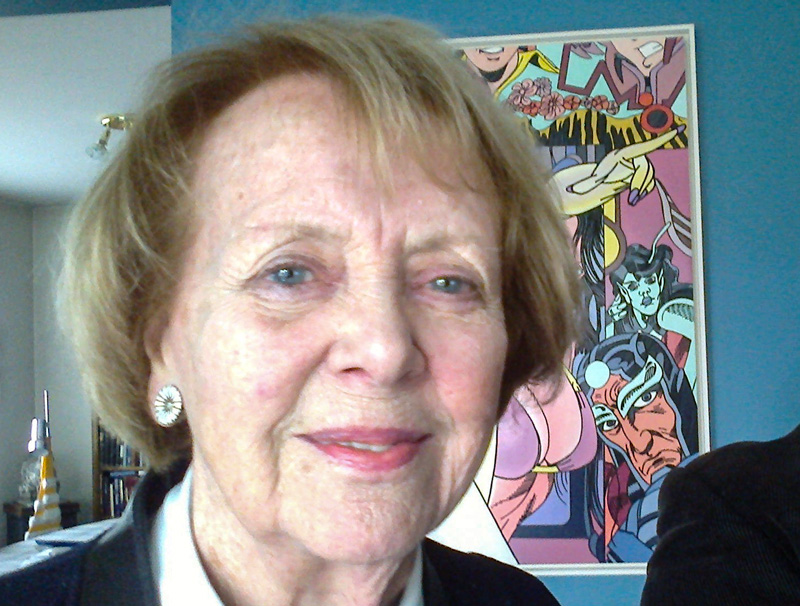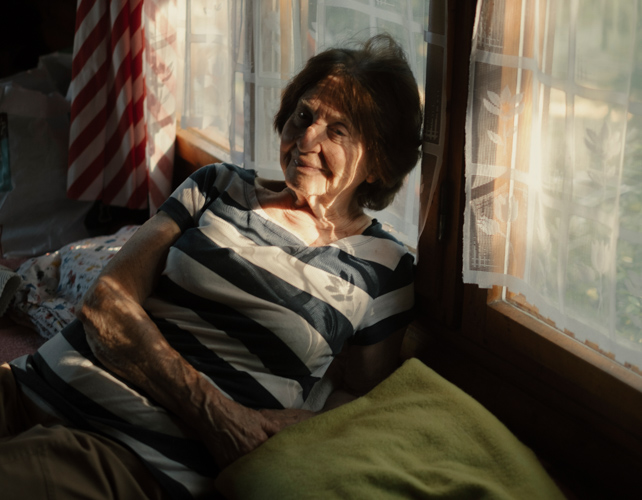Truda Stamać was a Croatian translator of German-language literature and author born in 1942.
Stamać, whose father was a native German incarcerated in a concentration camp during World War II, initially intended to study painting, but then decided move to Zagreb to study comparative literature and German. To honour her father’s memory, learning German as well as possible had been a desire since childhood, yet the absence of her father made her childhood, by her own account, a very Croatian one. After graduation she worked as a professional literary translator for the Croatian Ministry of Culture and as a cultural advisor for the Croatian Embassy in Vienna.
In her work as a translator she focused predominantly on Austrian writers, including Ingeborg Bachmann or Rainer Maria Rilke, but she also translated works by for instance Paul Cela and Hermann Hesse. Her translations have received several awards, including Austrian Honorary Cross for Science and Art. She is also the author of a collection of short stories, Kapi [“Drops”], and of a novel, Pasji život: godinu dana sa Stašom [“A Dog’s Life: A Year with Staša”].
Truda Stamać passed away in January 2021.
In her interview with Aida Alagić, Stamać touches on questions of identity and belonging, and the power of languages and translation to build bridges. She talks about the evolution of language, and the importance of different generations learning from each other through language, which, like people and culture itself, is always evolving.
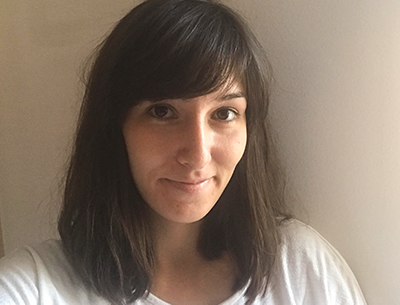
Truda Stamać was interviewed by Aida Alagić who studied comparative literature and German at the Faculty of Humanities and Social Sciences in Zagreb. Currently she is a graduate student working at the Department of German Studies.
Photo Truda Stamać ©Mira Muhoberac / Matica Hrvatska
Interview Highlights
On the need to learn German
I studied German and my dad was a Volksdeutscher [ethnic German]. When she got married, my mum promised to raise us in German. That didn’t happen. We started learning German, but the war broke out. I had a German name and last name and my dad was in a concentration camp, so we were raised as Croats. I still have a brother and I’ve always felt an obligation towards my father to learn this language the best I could.
On success and failure
I could tell you a success story of big rewards, of this and that, but also a story of great failures which would be just as lengthy. When I’m praised without having earned it, then I tell myself a story of some of my failures. And vice versa. When I’m being criticized, I tell myself, “It’s just one thing, you’re more than that.” So, I keep myself balanced between my successes and failures. […] For me, success and failure are relative. There is hardly a situation in which you are criticized for no reason, as well as a situation in which the praise you receive is completely earned.
On being a citizen
I feel as a citizen in the sense of some basic solidarity with the place where I currently am. Now I’m at an age when I can live wherever I want. But before, when I was more involved, it wasn’t like that. I wanted to live in the city, regardless of what the people in Zagreb were like, whether they accepted a foreigner or not. I am not a woman from Zagreb by the standard of the people from Zagreb, but I’ve always felt as one. I feel as one now, too. Even though I believe I could live anywhere.e only set of ideas that matter.
On the meaning of Europe
I always feel European. Europe is of great concern for me. I don’t know anything about France, I don’t speak French and this culture is not particularly close to me apart from [laughs] what I had to learn in general education. But deep down, I feel just as engaged with them as I do with the Germans, Scandinavians, or the British. […] I can feel something burning within me when Notre Dame is on fire. It’s not just a matter concerning the French, I think.
On feeling Croatian
Because my dad was in a concentration camp, the entire family was arrested, and later they let us go. I never asked why father was in the camp, it went without saying that it was because he was German. This was up until the war. After the war, he always declared himself a Croat. He studied in Vienna and so. We always used to say, “My mum is Croatian”; I used to say that, too. We felt that he was happy in the place where we grew up. I had relatives in Germany and visited them for the first time when I was in high school. They were repatriates who returned to Germany from Apatin [in Serbia]. They counted as refugees, they were fugitives and used to be called that. They asked me – that is, they asked my aunt – how I was related to them. When she answered, they asked me, “So you are also German?” and I said “No! I’m Croatian!” And my aunt, who struggled to be accepted, said, “Jesus, she embarrasses us by saying that she is Croatian!” I think my aunt was embarrassed because she struggled to reinvent herself there. And there I was saying those things, not as some distant relative, but as her brother’s daughter.
On education
My parents were frugal, even though they weren’t poor. If anything was necessary, then our education. We, that is my brother and me. If I told my parents that I wanted to play the piano, we’d have a piano in the house the following day. And to my brother’s dismay, he was showing a real talent for music. As he had a good ear for pitch, he played the violin and he got a violin, and they drove him around, he travelled to special violin classes in Osijek and Valpovo. Nothing ever came out of it. But this was never mentioned in the context of money being wasted. I never showed any interest or talent for music, but my parents would enable me to do everything I was interested in learning. For example, this painter who would come from Osijek to Valpovo to teach a drawing class. My dad would pick him up in his car because as a vet he was one of the first to own a car. He was making sure that this man would make it to his class. He would discreetly help from the outside as much as he could.
On translating
I was a passionate reader. I used to read Rilke in college, The Sonnets to Orpheus. I was obsessed with him, but at the same time didn’t know how to share this with others. You can’t just go around saying, “Oh, this is so beautiful.” So what did I do? I started translating. And in learning to do so, I was of course testing not just whether what I had translated was correct—that is always in question—but also if others thought it was beautiful, if they felt it was beautiful. I think that by translating I wanted to show how beautiful it was, how a certain combination of just two words can create something special.
